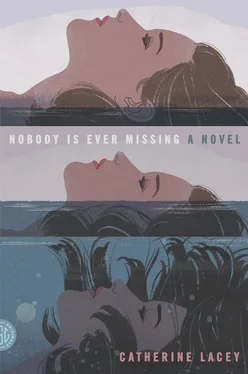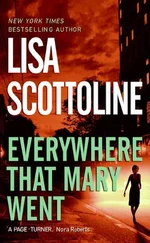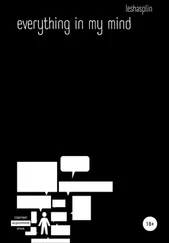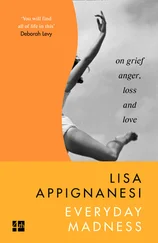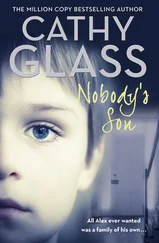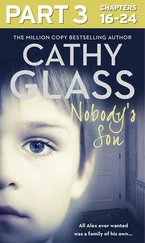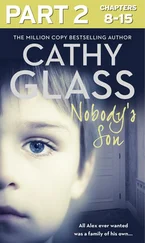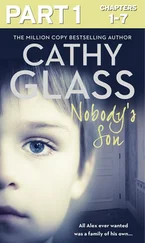What do you believe happens when we die?
More silence.
What do you believe happens when we die?
A desert, a canyon.
Thank you. What is your fondest childhood memory?
Ruby’s tenth birthday party. She wore a red dress and we skated and she told me we were halfway to twenty and someday we would go to France. It was also my birthday party. We didn’t know her exact birthday, but we guessed it could be maybe the same day as mine.
Thank you. What do you know for sure?
I don’t know anything for sure.
Thank you. What is your greatest fear?
I wanted to ask, what exactly did he mean by greatest — largest, most ferocious, grandest, most grandiose, most impossible — but I knew that the content of the questions wasn’t supposed to matter and the content of my answers also didn’t matter, because they were just studying the way a brain moves, how but not exactly where it goes.
What is your greatest fear?
I did everything wrong.
Thank you. What is the point of love?
To distract us.
Thank you. Is there an afterlife?
The questions kept coming like normal on this last day (for me) of the study and I went to the lab for more blood work and I smiled at the nurse when she smiled at me and I drank the blue liquid, then went to the dark room and I loved the dark room, but when the man asked, What is the value of travel? and What is the most memorable place you have ever visited? , I wondered for a moment if they knew something about my plans to leave the next week and I began to wonder, again, if my husband was in on all this — and I worried he knew I had the ticket for the next week and I wondered if he’d try to stop me — whether he’d somehow lock me in the apartment or show up at the gate or buy a ticket for the seat next to mine — this is how it would have gone in the soaps, I knew, overturned chairs, screamed names and vengeance and maybe a curse and often a window punched through and often blood and often a hospital, and in the hospital there’d be one kind moment between two lovely, loving people before the IVs were ripped out and beeping monitors went flat, a doctor, a Clear! , a jolt, but that was for television, for fiction, an exaggeration of what the rest of life was and I remembered my mother watching the soaps, this yellow-tinted memory of my mother behind a cloud of smoke, Ruby sitting at her feet, a forgotten bowl of cereal now lukewarm mush there in their real life, which they weren’t a part of in that moment, but now I couldn’t remember if this was a memory or a photograph or a total invention because I’d asked my mother once what soap she’d followed in the eighties and she said she hadn’t and didn’t know what I was talking about and maybe she was right, but I think she was wrong, and I think that’s the thing about fiction, that you live in it totally for a little while but you must forget it, sometimes totally forget it, in order to go about the rest of your life.
When I got home after that last day after the study I had an urge to look through my husband’s files extensively, an urge I’d been repeatedly having and repeatedly suffocating because I knew it wasn’t nice to snoop around like that. When I finally gave in I actually had no clear idea of what I was even looking for, but I told myself that it didn’t matter what I was looking for because the urge was large and serious and it was best just to get out of its way, so I did and I found his mother’s death certificate and it didn’t say suicide in the cause-of-death box, it said accidental , and my chest went warm for a moment because my first thought was that my husband had lied so that he could say he’d felt what I’d felt, that he knew what it was like to see a person lose herself to herself, that he’d created a fiction so he could get near the stuff of life that I was in. And if he had lied then what a horrible thing to spend such a long time lying about and what a sick thing to do — but what had probably happened, I assured myself, was that the person who filled out this certificate couldn’t find the ability to write the word suicide in that box because some people just can’t stand to live in a world where people sometimes take themselves out of it by choice and some people need to live in a world where suicides are all some kind of misunderstanding , some kind of accident , some lie that needs correcting and this reminded me of how at the end of my last morning at the clinic someone had said, See you next week? And I said, Yes . And I knew I was lying but that someone didn’t know I was lying unless that someone knew enough about me now to know when I was lying and if that someone did know that much they still lied right back to me by saying, Take care , and that was kind of whoever it was, to let us go on living in a little fiction; sometimes I think I don’t get enough of that in life, though other times I think I might get more than my fair share.
I sat on a curb in Takaka for a long time, trying to think clearly about mixed feelings.
Being alone was what I wanted; being alone was not what I wanted. I didn’t want to want anything; I wanted to want everything. I wanted to want a regular life: the usual husband, the usual apartment, the usual streets, sidewalks, noises, and so on. But I had left it. I had gone elsewhere. That was the right decision, I believed, except when I didn’t, which was both often and rarely.
I sat on the curb in Takaka and thought these things.
A tremendous amount of my brain was filled with noticing new things out here where nothing was familiar: buildings, types of cars, types of people, accents, plants, packaged-food items. Before I left my brain never had to register my bedroom, my husband, mailbox, apple core, alarm clock, walls. My brain just said, “___, ___, ___, ___, ___, ___, ___, ___,” to those things, because a brain lets you keep going, keep not seeing your same walls, underwear, husband, doorknobs, ceiling, husband, husband. A brain can be merciful in this way: sparing you the monotony of those monotonies, their pitiful cozy. A brain lets all the bore-filled days shrink like drying sponges until they’re hard and ungiving.
At the same time, I missed my ceiling. I missed how the drywall by the bathroom was uneven. I missed hearing the door open, hearing the door close, knowing a familiar body was in the other room, moving around, going about itself.
I walked into the library and the library smelled like every library I’d ever been in and Dewey decimals were on all the spines, same tiny font, tiny numbers, and I thought, for a moment, that there actually were things you could count on in this world until I realized that the most dependable things in the world are not of any significant use to any substantial problems. I left the library after some time and I thought I should maybe bring some groceries or something to Werner’s and I tried to determine if I should hitch again, but I didn’t want to explain myself to anyone and I thought if I heard someone call me brave one more time I might rip off my own thumb and not even bother to stop the blood from staining their upholstery.
I bought some pears and cashews and canned beans while thinking about whether a person could be physically capable of tearing off their own thumb and the specifics of that thought kept me company on the long walk to Werner’s place. When I found him standing shirtless in his side yard, I was holding the scrap of paper he’d written his address on that night in New York, so I let my backpack thud off me and I handed the scrap of paper to him for lack of anything else to do with it.
Читать дальше
